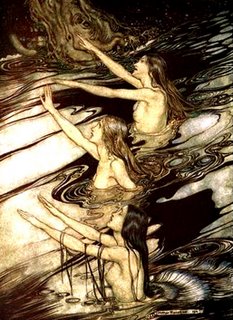The Rebirth of Orpheus
A change in consciousness is being called for, we are all being asked to put away childish things and break the consensus trance that could lead us off a cliff.
The group think of standard Western discourse is now both so misguided and loud that it can seem impossible to pose a workable alternative.
But there is a path, and we must sing a different song. We must call the arts to our aid.

When the perilous journey of Jason and his Argonauts was to take them on a route past the rocks of Sirenum Scopuli, Jason called on the aid of the bard Orpheus. When the Argo came to those rocks and the Sirens began their sensuous, alluring singing - singing that had drawn so many to their deaths there, wrecked and ravaged, broken by the very promises that attracted them – Orpheus took up his lyre and he played music more beautifully than that of the Sirens, thus drowning out their inviting but deadly song.

In a recent interview the author Brian Goodwin tries to answer the question of how the ideas necessary to achieving planetary transformation can be best communicated, and he suggests a primacy for the “rebirth of Orpheus”. While the political realm must play an important role, the very system of politics requires a transformation itself, and maybe art can help there too.
So let us call now on the Orpheus of the Argo lest we have later to journey with him into the underworld to recover what we have lost.
A tree rose up – O apogee of rising!
Now Orpheus sings, all hearing’s tallest tree.
And nothing speaks but signals in the silence,
new births and transformations, come to be
Rainer Maria Rilke
(Rilke translated by Stephen Cohn, Sonnets to Orpheus with Letters to a Young Poet (Carcanet 2000) )
James Piers Taylor
IMAGES: Orpheus - unknown artist from vase c.440 BC, Sirens in the Water by Arthur Rackham



0 Comments:
Post a Comment
<< Home